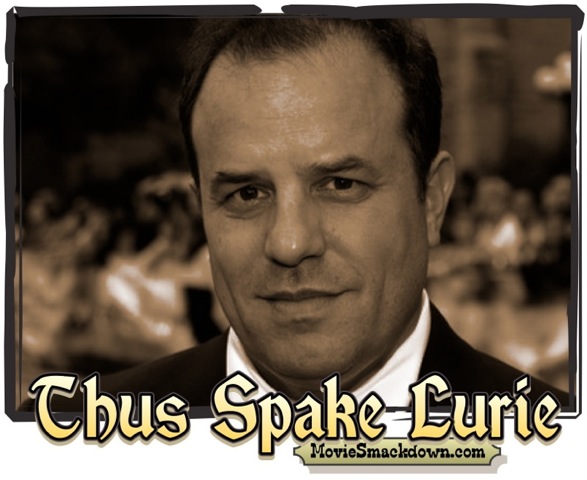
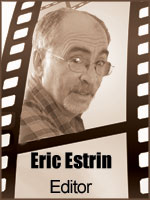 I remember my shock back around the turn of the millennium, when I learned that Rod Lurie, whom I knew only as the former film critic at Los Angeles magazine, was writing and directing his second movie. I had been a critic at the magazine, too, a few years before Lurie. I went on to write for television, and I heard that Lurie had been making waves as an L.A. radio host, interviewing celebrities and, by winning on-air bets with three of them — Mel Gibson, James Cameron and Martin Landau — getting them to mention his name in Oscar acceptance speeches. The guy was apparently some kind of hustler, and now he had somehow hustled his way to the helm of a $20 million studio film.
I remember my shock back around the turn of the millennium, when I learned that Rod Lurie, whom I knew only as the former film critic at Los Angeles magazine, was writing and directing his second movie. I had been a critic at the magazine, too, a few years before Lurie. I went on to write for television, and I heard that Lurie had been making waves as an L.A. radio host, interviewing celebrities and, by winning on-air bets with three of them — Mel Gibson, James Cameron and Martin Landau — getting them to mention his name in Oscar acceptance speeches. The guy was apparently some kind of hustler, and now he had somehow hustled his way to the helm of a $20 million studio film.
Then I saw the film, The Contender, and my envy turned to admiration bordering on awe. Not only did the movie have something interesting to say about American politics circa 2000, it did so with intelligence and sensitivity, earning Academy Award nominations for two of its stars, Joan Allen and Jeff Bridges.
Lurie’s success in the film world stalled out for a while after that, with only The Last Castle making much of a blip. He had more luck then in television, creating two politically oriented drama series, Line of Fire and Commander in Chief, the latter starring Geena Davis as America’s first woman President, before jumping back into film and getting his biggest shot yet with the upcoming release of Straw Dogs, which he has remade from the 1971 Sam Peckinpah classic of the same name.
Lurie has already taken some heat for tinkering with what is perhaps Peckinpah’s most highly regarded film, a movie that despite being accused at the time of excessive violence, misogyny and even artistic fascism, has influenced our culture far beyond its meager box office performance would indicate. Ironically, with its tense action, controversial history and strong studio support, this remake starring James Marsden and Kate Bosworth could be the film that puts Lurie, a director known for his empowering portrayal of women, back on top of his game.
MS!: What’s the deal with all the remakes studios are doing these days?
RL: Somebody once said that we’re not just running out of new ideas; we’re gonna start running out of the old ones pretty soon as well. The way that I’m looking at it right now is that the remake is a genre in and of itself, and what is required of this genre is that you find a way to tell a story differently. People are constantly asking me if there was a need to remake Straw Dogs. The word “need†gets used over and over again. And of course, there’s no need to make any film, but there is a purpose behind them. If you can find a purpose behind making a film, then remake or not, it’s probably worthy of the experiment.
MS!: And your purpose was…?
RL:  In the case of this film, there is nothing to improve on Straw Dogs, nor would I be capable of improving on Peckinpah. He was a genius, who self-created a sub-genre when he made The Wild Bunch. But he had a point of view in his movies and in particular in Straw Dogs that is simply in opposition to anything that I’ve ever thought. He contended that human beings were biologically violent, that we’re all coded to violence, and at worst, I see us as being conditioned to violence. So Straw Dogs, which definitely took this theory, which by the way is entombed in a book called The Territorial Imperative by Robert Ardry, of whom Peckinpah was a devoted follower…
MS!: Right, and Pauline Kael was not…
RL: And Pauline Kael was not, and that’s exactly why she called the movie “a fascist work of art†— but emphasis on both the word “fascist†and the words “work of art.†Very few people that I know of are believers in the territorial imperative, and neither am I whatsoever. So what I thought would be kind of an interesting experiment would be to see if I could tell the same story, but from the point of view that humans are conditioned to violence, rather than violent to begin with.
MS!: Does it bother you that you’re subverting Peckinpah’s intent like that? I mean, why not just make a different film and give it a different name?
RL: First of all, as I said, I thought that the remake is a genre in itself. So I thought it would be a wonderful experiment to see if you could take the same story and tell it with the same beats, theoretically, but with a completely different point of view. It’s not something that I’ve seen done consciously in past films. I thought that it might be interesting. And as for changing the name, three directors who had done remakes all recommended to me to change the name. But I just felt, and so did the studio, that let’s grab the donkey by the balls here and let’s tell it like it is. It’s a remake of Straw Dogs.
MS!: And it probably helped somewhat commercially to keep the name, too.
RL: Well, you would think, but when we did our research, and literally we researched this, we discovered that less than 5% of the population has even heard of Straw Dogs, let alone seen it, so it’s absolutely negligible. But you know, I think it’s a good title. It sticks to your bones.
MS!: Although probably, even the people who have seen the movie don’t know what it means.
RL: Well, they don’t, and in fact, it took a long time for them to come up with that title for the original film. It was discovered by Peckinpah from a book called Five Thousand Characters, by Lao Tzu. I think that when you look at my film and watch everything carefully, the title has a tremendous amount of value.
MS!: But what does it mean?
RL: Straw dogs in ancient Chinese rituals were gods made out of straw, and after the ceremony was done, they were torn apart and thrown away and had no meaning. So a lot of this movie is about people who have gone through their lives having moments of grandiosity, maybe by being a football star, and when it’s all over, they go into a life where they are thrown away. They’re not considered very important any more.
MS!: In the original film, the protagonist, David Sumner, was a scientist. Why did you change him into a screenwriter?
RL: Well, you know, this question can be applied in a fill-in-the-blank sort of way about so many things in the film: Why is it in the South? Why is [the Kate Bosworth character] older? Why is she an actress? Why are they hunting deer and not hunting birds? Many times the answer is because I wanted to give it some variety and to flesh it out a little bit more and to make it a little bit more relatable to an audience or what have you. In the case of the original Straw Dogs, my belief is that the original David was a rigid thinker and didn’t like to confront. So he works in a job in which the answers are black and white and there’s no gray area. The character I wanted to create was simply a different human being. He’s a guy who’s much more of a free thinker, and therefore he’s a writer where he can deal with confrontation on the page, although he may not be so good at it in real life.
MS!: I’ve heard that Peckinpah considered David the true villain of the film.
RL: Yes, he definitely called him the heavy of the movie. And when you look at the film, it becomes pretty clear – he’s a very provocative guy. At the end of the film you see that he really is full of violence and it’s something that is deeply rooted inside of him, and I think that Peckinpah and [Dustin] Hoffman did an absolutely brilliant job of portraying that. But I’ll say again, the role in my film was entirely different.
MS!: So you purposely made a significant change to the character.
RL: When the original movie was being made, Hoffman was the sixth choice for the role. There were several actors before him: Beau Bridges, Stacy Keach, Elliott Gould, Donald Sutherland, Sidney Poitier. When you look at all those guys, any one of them in that role would have changed absolutely the chemistry of the film entirely. One of the reasons why I took Marsden was because I didn’t want to hire somebody who was a Hoffman-like actor. I went to a guy, Marsden, who is a brilliant actor, who I think is more in the Redford-Newman school of acting. Montgomery Clift. That’s where I think his strengths are.
MS!: In the original, their marriage was shaky from the beginning. Did you keep that element?
RL: The marriage, like all marriages, is imperfect, but I would say the one in my film has a greater sense of balance than it does in the original film. Something that made the first film very interesting was that it depicted people who are caught in a bad marriage and don’t really realize it. I think that in the original film what breaks them apart is the differences that they have, and I think in my film, it’s the differences that make them stronger.
MS!: I’ve read that you think your film has a feminist sensibility to it.
RL: Yes, I do. The issues that Peckinpah ran into will not be the ones that we run into. What I can tell you is, I’ve seen the movie with test audiences and now with regular audiences, and they were with this film from beginning to end. It’s very much an audience-pleasing film, especially for the women who want to see strong, fierce women onscreen.
MS!: One of your early films, The Contender, really put you on the map. Was that your biggest critical success?
RL: I’ve had some success critically, and I’ve been to the Oscars and Golden Globes a few times. And the truth is, that’s wonderful, and that really is what I aim for in most of my life, when all is said and done, but it would be nice to open up to some nice box office. I would like people to go see my film. I remember the first night that Commander in Chief, my TV series aired, it came out Number One. That was a good night for me.
September SmashUp!
Contagion -vs- Outbreak “Microbes from Hell”
httpvh://youtu.be/EQX7KsrXqUY

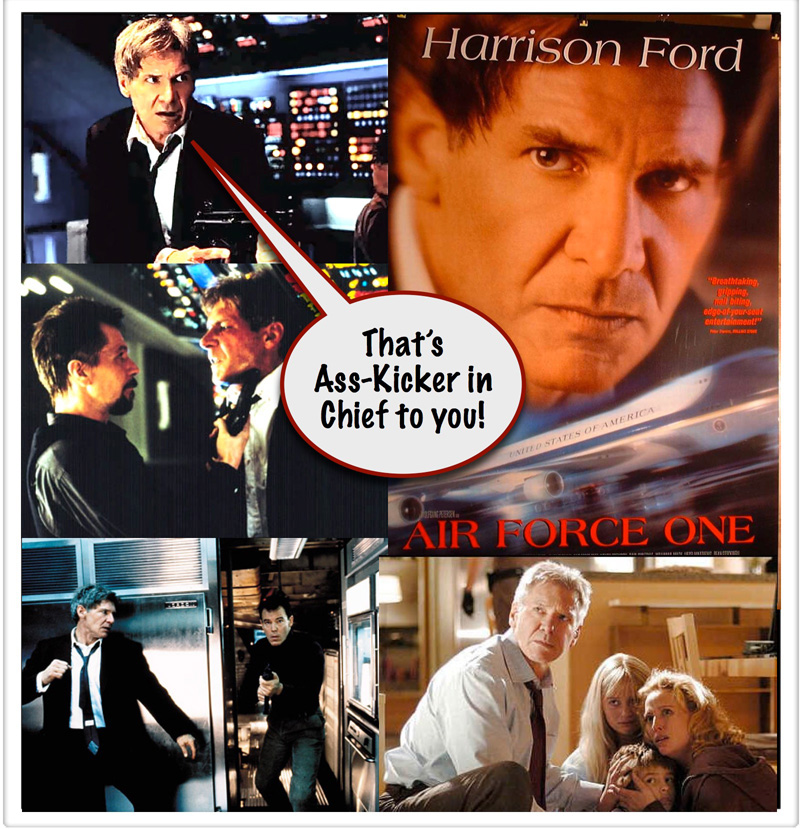
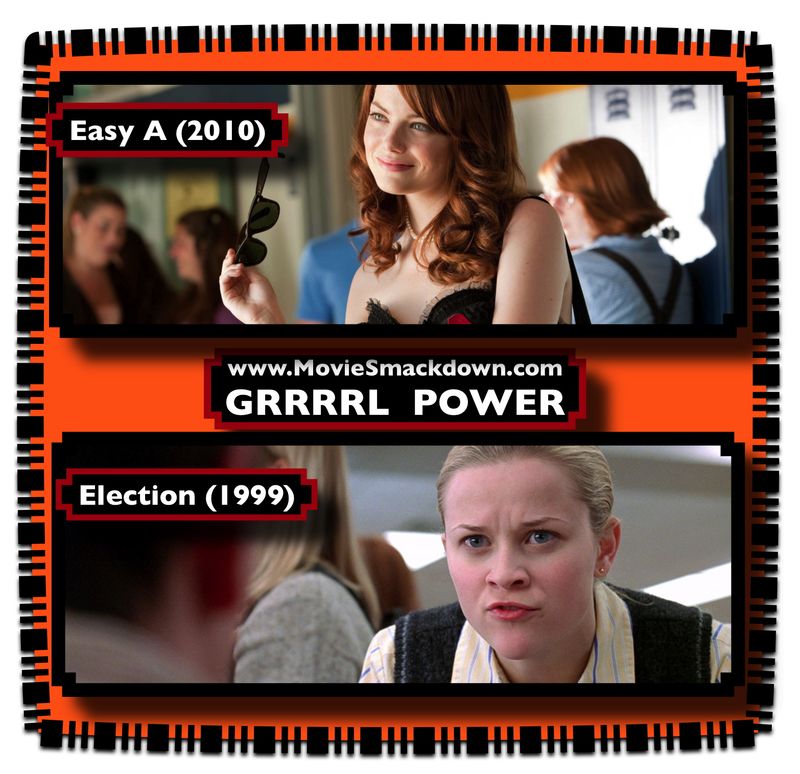
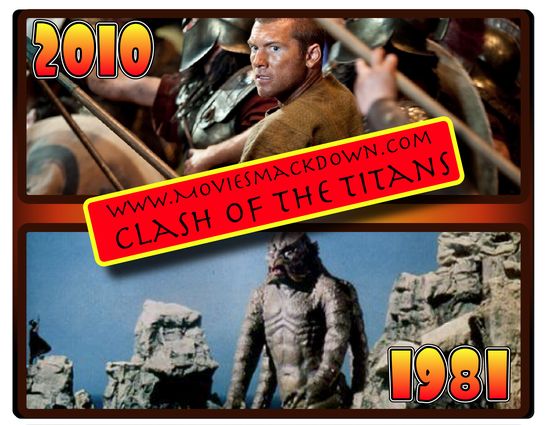
This remake was such a disappointment. The casting was awful. The direction was worse. And, was that acting? Ugg. Unfortunate? A sad sad day for cinema. If a filmmaker “has to do” this to get produced…perhaps “has to do” should be re-evaluated. I wish I had my money back.
Thanks, guys. I saw the film last night and was kind of disappointed. It works pretty well as a modern genre film, but Lurie is capable of so much more than this. It’s unfortunate that this is what talented filmmakers have to do to get produced these days.
A terrific interview — and some good insight into what Mr. Lurie was thinking when he decided to do this particular remake. By the way, most accounts regarding the meaning of the title refer to the book by Lao Tzu, however the Urban Dictionary has a different, more contemporary definition: “A Straw Dog is a scapegoat group, person, or idea which we direct our evilness toward so that we can lay blame on it, and then by attacking or destroying it, we can justify the evilness we have done and thus feel free of sin. America has often used an “out group” as a straw dog, such as Communists, gays, labor unions, Democrats (or Republicans), etc.” In any event I very much look forward to seeing the new version and comparing it to the original.
I was dubious about a remake of Straw Dogs, although until now I was unaware Lurie was behind it. Now I definitely think I’ll check it out, because I admired his work with The Contender (one of the best films about politics I’ve ever seen) and think his stated slant on the concept might just bring the story into a modern context.
Great interview, Eric. Well done.
Eric.. Well done interview! Another good reason to visit the ‘Smack.
Well, that worked. Now I want to see this new film and the old one, too. Very fun read.